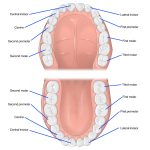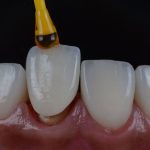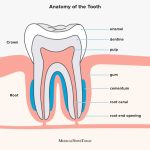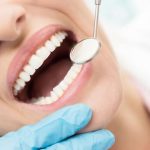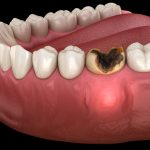DIY Dental Care: Learn How to File Your Teeth Safely at Home

DIY Dental Care has become increasingly popular in recent years, as people are looking for ways to save money on oral health while avoiding costly trips to the dentist. One of the latest trends in DIY Dental Care is teeth filing, which involves smoothing rough edges or adjusting the shape of teeth at home. While this may sound daunting, with the right tools and knowledge, teeth filing can be done safely and effectively. In this article, we will explore the ins and outs of DIY teeth filing, including the benefits, risks, and step-by-step instructions for a safe and successful teeth filing experience. Whether you are looking to fix a chipped tooth, adjust the length of your teeth, or simply improve the appearance of your smile, you will find everything you need to know about teeth filing in this comprehensive guide. So, grab your dental tools and let’s get started on your journey to a brighter, healthier smile!
Why People File Their Teeth

Filing teeth, also known as tooth reshaping or dental contouring, is a cosmetic dental treatment that has been gaining popularity among young adults. Many people file their teeth to improve the appearance of their teeth, especially if they have uneven or jagged edges. Others do it to address minor dental problems such as small chips or overlapping teeth. Filing teeth is a non-invasive dental procedure that involves the removal of a small amount of tooth enamel. It is a relatively simple procedure that can be done by a dentist or even at home with the right tools. However, it is important to note that filing teeth should only be done by a professional to avoid damaging the teeth or causing other dental problems. While filing teeth may seem like a harmless procedure, it is important to understand that it can have some potential risks. Over-filing can weaken the teeth and cause sensitivity or even tooth decay. It is also important to note that filing teeth is not a substitute for regular dental care, and it is important to maintain good oral hygiene habits to prevent dental problems. Additionally, filing teeth should not be done on baby teeth or permanent teeth that are not fully developed. Overall, filing teeth can be a safe and effective cosmetic treatment when done by a professional. However, it is important to consider the potential risks and consult with a dentist before undergoing the procedure.
Aesthetic reasons are often the main motivation behind DIY dental care, particularly when it comes to filing teeth. Some people feel self-conscious about the shape or alignment of their teeth, and filing can help to create a more uniform appearance. However, it is important to approach this procedure with caution and to only file small amounts at a time. Filing too much can weaken the tooth and lead to sensitivity or even tooth loss. It is also important to use the right tools and techniques to minimize the risk of damage. While DIY dental care can be an effective way to improve the appearance of your teeth, it is always best to consult with a professional dentist to ensure that you are doing it safely and effectively.
Functional reasons are one of the main motivations behind DIY dental care, particularly when it comes to filing teeth. Misaligned or uneven teeth can cause a variety of problems, including discomfort, difficulty chewing, and even speech impediments. While traditional orthodontic procedures can be costly and time-consuming, filing teeth at home can provide a quick and affordable solution for those seeking a more functional smile. It is important to note, however, that while DIY dental care can be effective for certain issues, it is crucial to approach the procedures with caution and seek professional guidance if necessary.
Cultural reasons play a significant role in the practice of DIY dental care, especially when it comes to filing teeth. In some cultures, teeth filing is a long-standing tradition that is believed to enhance beauty and social status. This practice is particularly popular in Southeast Asia, where people file their teeth to achieve a pointed or sharpened appearance. However, it’s important to note that while cultural beliefs can be influential, they should not overshadow the importance of dental health and safety. It’s crucial to approach teeth filing with caution and seek professional advice if necessary, to avoid causing irreversible damage to teeth and gums.
Risks of Filing Teeth at Home
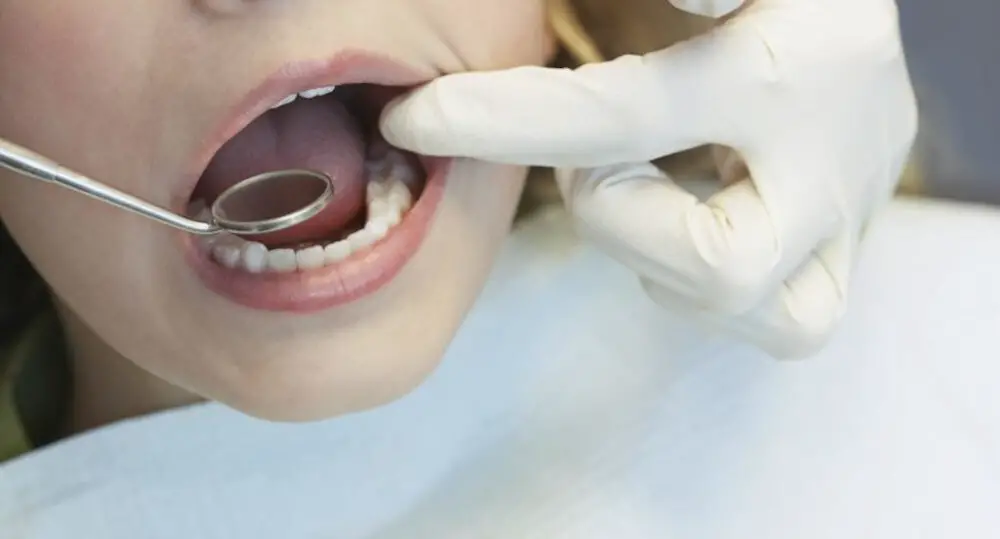
While DIY dental care may seem like a convenient and cost-effective solution, filing your teeth at home can come with a number of risks. One of the most significant dangers is the potential for damage to the tooth enamel, which is the hard outer layer that protects the sensitive nerves and blood vessels inside the tooth. Excessive filing can compromise the enamel, causing it to become thinner and weaker over time. This can lead to a range of problems, including tooth sensitivity, increased risk of cavities, and even tooth loss in severe cases. In addition to the risk of enamel damage, filing your teeth at home can also increase your risk of infection and other complications. Without the proper tools and techniques, it’s easy to accidentally introduce bacteria and other harmful substances into the tooth, which can lead to inflammation, pain, and other oral health issues. Another potential risk of filing your teeth at home is the possibility of creating an uneven or misaligned bite. Teeth rely on each other for support and stability, and altering the shape or size of one tooth can throw off the entire balance of your bite. This can lead to discomfort, difficulty chewing, and even jaw pain over time. Additionally, without proper training and experience, it can be difficult to achieve the desired results when filing your teeth at home. You may end up removing too much enamel or shaping the tooth in a way that is not aesthetically pleasing, which can be difficult and costly to correct later on. For these reasons, it’s generally best to leave tooth filing and other complex dental procedures to the professionals.
Chipping or cracking teeth is a common dental problem that can be caused by several factors, such as trauma, grinding teeth, or biting hard objects. This condition can be painful and uncomfortable, affecting the way you chew, speak, and smile. In some cases, it may also lead to tooth decay or infection if left untreated. While it is always recommended to seek professional dental care for any tooth-related issues, there are some DIY dental care practices that can help alleviate the symptoms of chipped or cracked teeth, such as using dental wax or filing the rough edges of the tooth with a fine-grit sandpaper. However, it is crucial to be cautious and gentle when performing any DIY dental care practices to avoid further damage or complications.
Increasing sensitivity is a common issue experienced by many individuals when it comes to their teeth. Whether it’s due to aging, poor oral hygiene, or excessive teeth grinding, sensitivity can be a frustrating and painful problem. However, there are steps that can be taken to reduce sensitivity and improve overall dental health. One effective method is to incorporate a desensitizing toothpaste into your dental care routine. These toothpastes contain ingredients that help to block pain sensations and protect the teeth from further damage. Additionally, avoiding acidic foods and drinks, practicing good oral hygiene habits, and wearing a mouthguard at night can also help to reduce sensitivity and improve overall dental health.
When performing DIY dental care, it is crucial to be aware of the risks of infection. Infection occurs when harmful bacteria or viruses invade the body, causing an inflammatory response. In dental care, infection can occur if proper hygiene is not maintained, leading to the growth and spread of harmful bacteria. When filing teeth at home, it is essential to ensure that all tools are properly sanitized and to follow proper dental hygiene practices, such as brushing and flossing regularly. Failure to do so can lead to painful tooth infections, which may require professional dental treatment. Therefore, it is essential to take infection prevention seriously when performing DIY dental care.
Steps to File Your Teeth Safely at Home

Filing your teeth at home is a process that can help you achieve the desired shape and size of your teeth, but it is crucial to do it safely to avoid any damage to your teeth or gums. The first step to filing your teeth safely is to choose the right tools. You will need a dental mirror, a dental scaler, and a fine-grit sandpaper or diamond file. These tools will help you see and access the surfaces of your teeth that you want to file, and file them effectively without causing any harm. It is also important to sterilize your tools before and after use to prevent any infection or contamination. Once you have the tools, you should start by examining your teeth in the mirror to identify the areas that require filing. You should then gently use the dental scaler to remove any plaque or debris from your teeth. After that, you can use the diamond file or sandpaper to file your teeth carefully and slowly, avoiding any sudden or forceful movements that can damage your teeth or gums. It is important to file your teeth in a straight line, following the natural shape and curve of your teeth, and not to file them too much or too often as this can weaken your teeth and increase the risk of tooth decay and sensitivity. By following these steps, you can file your teeth safely at home and achieve the desired results without compromising your dental health.
Before attempting to file your teeth at home, it is important to gather the necessary tools to ensure a safe and effective procedure. You will need a dental mirror to help you see the areas of your teeth that need filing, as well as a dental scaler or pick to remove any plaque or debris. Additionally, you should have a set of dental files in varying sizes and grits to help you shape and smooth the edges of your teeth. It is important to invest in high-quality dental tools to ensure that you are able to perform the procedure safely and accurately without causing any damage to your teeth or gums. By taking the time to gather the necessary tools, you can ensure a successful DIY dental care experience.
One of the most important things to keep in mind when filing your teeth at home is to soften the edges. This is crucial because sharp edges can cause irritation, pain, and even damage to your tongue and cheeks. To do this, you can use a fine-grit sandpaper or a dental polishing tool to gently smooth out the edges of your teeth. It’s important to be gentle and go slowly, as you don’t want to remove too much enamel or create uneven surfaces. By softening the edges, you’ll not only improve the appearance of your teeth but also ensure that they’re comfortable and safe.
Filing your teeth at home may sound intimidating, but with the right tools and technique, it can be a safe and effective way to improve your smile. One important aspect of filing your teeth is knowing how to file in one direction. This means that you should only file in a forward or backward motion, rather than sawing back and forth. Filing in one direction helps to prevent damage to the tooth enamel and reduce the risk of chipping or cracking. Additionally, it’s important to use a gentle touch and only file a small amount at a time, as excessive filing can lead to sensitivity and other dental issues. With these tips in mind, you can confidently file your teeth at home and achieve the smile you’ve always wanted.
When it comes to DIY dental care, taking breaks is crucial. Filing your teeth at home can be a time-consuming and potentially risky task, so it’s important to take frequent breaks to avoid fatigue and mistakes. Additionally, breaks give you the opportunity to step back and assess your progress, ensuring that you’re achieving the desired results without causing any damage to your teeth or gums. So, as you embark on this DIY dental adventure, remember to take plenty of breaks to give yourself a chance to rest, recharge, and evaluate your progress. Your teeth will thank you for it!
Polishing your teeth is an essential part of maintaining good oral hygiene. It helps remove any surface stains and plaque buildup that can lead to tooth decay and gum disease. There are various methods to polish your teeth at home, and one of the most effective ones is using a dental polishing kit. These kits usually come with a small rotary tool that you can use to buff away any imperfections on the surface of your teeth. However, it’s essential to use caution when using these tools as overuse or improper use can damage your teeth and gums. Always follow the instructions carefully and start with a low speed to avoid any discomfort. Additionally, it’s essential to maintain a regular dental cleaning routine, including brushing twice a day, flossing, and visiting your dentist for professional cleanings.
Alternatives to Filing Teeth at Home

While DIY dental care can be an appealing and cost-effective option for those looking to maintain their dental health, filing teeth at home is not a recommended practice. Filing teeth can lead to irreversible damage, such as weakened enamel, increased sensitivity, and even tooth loss. Instead, there are a variety of alternatives to filing teeth at home that can help improve dental health without risking long-term damage. One alternative to filing teeth at home is to invest in a quality electric toothbrush. Electric toothbrushes are designed to remove plaque and bacteria more thoroughly than manual brushing, leading to better overall dental health. Additionally, electric toothbrushes come with a variety of attachments, such as interdental cleaners and gum massagers, that can help address specific dental concerns. By incorporating an electric toothbrush into your dental care routine, you can improve your dental health without resorting to potentially harmful DIY practices. Another alternative to filing teeth at home is to visit a dentist for professional teeth cleaning. Dental professionals are trained to safely remove plaque and bacteria from teeth without causing damage. Additionally, dentists can provide personalized recommendations for improving dental health, such as dietary changes or specific oral care products. By seeking out professional dental care, you can ensure that your dental health is being addressed by qualified experts who can help you achieve the best possible outcomes.
While DIY dental care may seem like a cost-effective solution, it is essential to recognize the importance of professional dental treatment. Professional dental care involves a comprehensive examination, cleaning, and treatment by a licensed dentist with years of experience and expertise. A dentist can identify potential dental issues before they become severe and recommend appropriate treatment options to maintain optimal oral health. Additionally, professional dental treatment utilizes state-of-the-art technology and techniques to ensure a safe, effective, and comfortable experience. So, while DIY dental care may seem enticing, it is crucial to prioritize professional dental treatment for the best possible outcome.
Dental bonding is a cosmetic dental procedure that involves the application of a tooth-colored resin material to the surface of the teeth, which is then hardened with a special light. This procedure is commonly used to repair chips, cracks, and gaps in the teeth, as well as to improve the appearance of discolored or misshapen teeth. Dental bonding is a relatively quick and painless procedure that can often be completed in a single visit to the dentist. However, it is important to note that while dental bonding can improve the appearance of the teeth, it is not a permanent solution and may need to be replaced over time.
Veneers are a popular cosmetic dental treatment that involves placing a thin layer of porcelain or composite resin material over the surface of a tooth. Veneers can be used to improve the appearance of teeth that are chipped, stained, misshapen, or have gaps between them. They are custom-made to fit each patient’s unique smile and are bonded to the teeth using a strong adhesive. Veneers are a durable and long-lasting solution for achieving a brighter, more even smile. While it is possible to purchase DIY veneer kits online, it is strongly recommended that individuals seek out a trained dental professional for this procedure to ensure proper placement and avoid any potential complications.
Filing your teeth at home might seem like a daunting task, but with proper technique and precautions, it can be done safely. First and foremost, it is important to understand that filing your teeth should only be done for cosmetic reasons and not to fix any dental problems. Secondly, it is crucial to use the right tools, such as a fine-grit sandpaper or a dental file, and to sterilize them beforehand. It is also important to file in a gentle, back-and-forth motion, avoiding excessive pressure or filing in a single direction. Lastly, be sure to consult with a dentist beforehand to ensure that filing your teeth is an appropriate option for you. With the right approach, filing your teeth at home can be a safe and effective way to achieve the desired look for your smile.
While DIY dental care can be tempting due to its cost-effectiveness, it is crucial to weigh the potential risks and alternatives before attempting any dental procedure at home. Mishandling tools or performing procedures incorrectly can lead to irreparable damage to teeth and gums, resulting in expensive dental bills in the long run. It is also important to consider safer alternatives such as using a soft-bristled toothbrush and flossing regularly to maintain oral health. Consulting a professional dentist for any dental concerns or procedures is always the safest and most effective option to ensure the health and longevity of your teeth.
If you have any concerns about your dental health, it is crucial to consult with a dental professional. While DIY dental care may seem like an easy and cost-effective solution, it can cause more harm than good in the long run. A dental professional can provide proper guidance and advice on how to maintain healthy teeth and gums without risking damage or injury. They can also identify any underlying issues that may require professional treatment and provide personalized recommendations on the best course of action. Neglecting to seek professional advice can lead to serious dental problems that may require invasive and expensive procedures to correct. When it comes to your dental health, it’s always better to be safe than sorry.
Conclusion
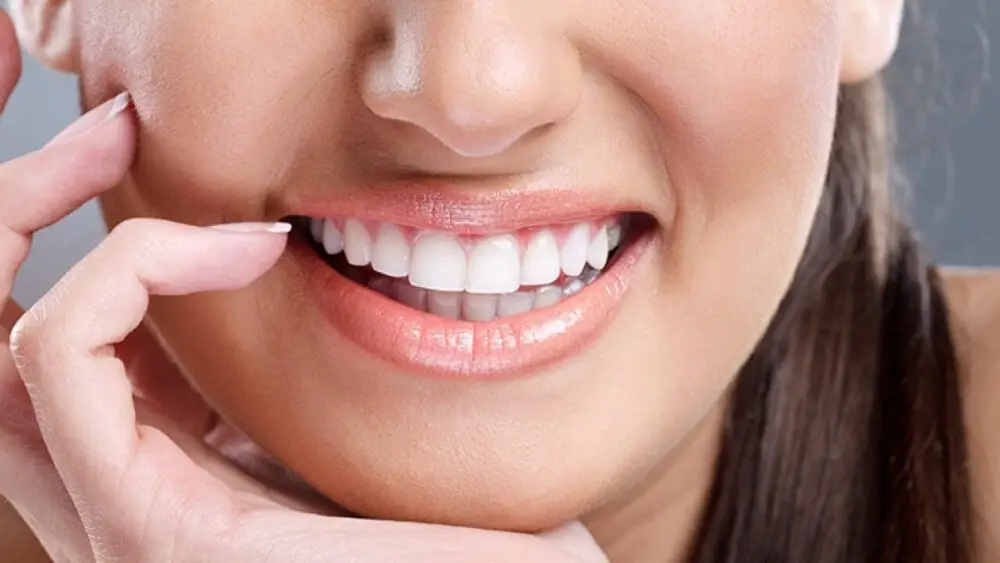
In conclusion, while DIY dental care may seem like a cost-effective and convenient solution, it is important to exercise caution when attempting to file your teeth at home. Without proper training and expertise, attempting to modify your teeth can lead to serious damage and potential health risks. It is always recommended to consult with a licensed dental professional for any dental procedures or modifications. Remember, your dental health is not worth risking for the sake of a quick fix. Practice good oral hygiene and seek professional dental advice to maintain a healthy and beautiful smile.
